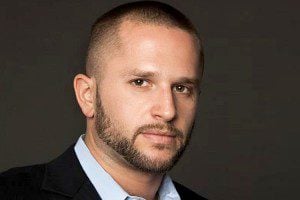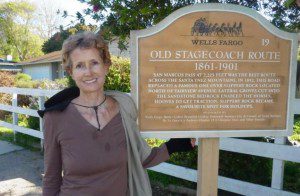 If you’re like me, you’re pretty skeptical about that loaded question. A recent story in The Atlantic made me think more about this subject, though. David H. Freedman’s “The Triumph of New-Age Medicine,” from the July 2011 issue, makes the case for alternative medicine more persuasively than I’ve heard it. You may be skeptical at this point, and you may not come away convinced, but the piece does give you much to chew on.
If you’re like me, you’re pretty skeptical about that loaded question. A recent story in The Atlantic made me think more about this subject, though. David H. Freedman’s “The Triumph of New-Age Medicine,” from the July 2011 issue, makes the case for alternative medicine more persuasively than I’ve heard it. You may be skeptical at this point, and you may not come away convinced, but the piece does give you much to chew on.
Here’s one anecdote that caught my attention:
At one of the University of Maryland Medical Center’s hospitals, I introduced myself to Frank Corasaniti, a 60-year-old retired firefighter who had come in for an acupuncture treatment from Lixing Lao, a Ph.D. physiologist with Berman’s center. Corasaniti had injured his back falling down a steel staircase at a firehouse some 20 years earlier, and had subsequently injured both shoulders and his neck in the line of duty. Four surgeries, including one that fused the vertebrae in his neck, followed by regimens of steroid injections and painkillers, had only left him in increasing pain. He retired from the fire department in 2002 and took a less physically demanding job with Home Depot, but by last year his sharpening pain made even that work too difficult, and he gave it up. “I was starting to think I’d have to stop doing everything,” he told me. He was particularly worried that he’d be unable to continue helping out his mother, who had been battling cancer for two years.
His wife, a nurse, urged him to try acupuncture, and in February, with the blessing of his doctor, he finally met with Lao, who had trained in his native China as an acupuncturist. Their first visit had lasted well over an hour, Corasaniti says, time mostly spent discussing every aspect of his injuries and what seemed to ease or exacerbate them, and also other aspects of his health—he had been gaining weight, he was constipated, he was developing urinary problems. They talked at length about his diet, his physical activity, his responsibilities and how they weighed on him. Lao focused in on stress—what was causing it in Corasaniti’s life, and how did it aggravate the pain?—and they discussed the importance of finding ways to relax in everyday life.
The results of this treatment are worth considering. Perhaps diet and stress play far more of a role in our health than we know:
Corasaniti’s description of the results is fairly typical too. After two months of treatment, the worst area of pain, near his neck, had shrunk from a circle six inches across to the size of quarter, he said. He’d lost 10 pounds, and his constipation and urinary difficulties had cleared up. And because of his progress, he’d been cleared by his doctor to start a vigorous monitored-exercise program aimed at strengthening muscles in a way that should reduce the chances of reinjury, in addition to improving his general fitness. “I just feel so much better,” he said.
Read the whole thing. Here’s a larger symposium on the issue that might be of interest. Two things jump out at me: 1) the prevalence of “placebo” medication dispensed to the population, and 2) how important the mind is in healing (and thus apparently diet and exercise).
(Image: Acu-Ithaca.com)











